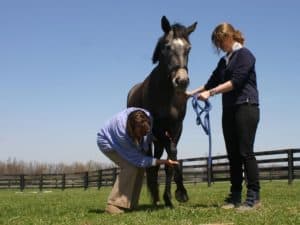
3 Neurologic Equine Diseases to Know
These difficult-to-diagnose conditions can undermine a horse’s balance and coordination.


These difficult-to-diagnose conditions can undermine a horse’s balance and coordination.

Learn to recognize the signs of equine back pain and what therapies are available.
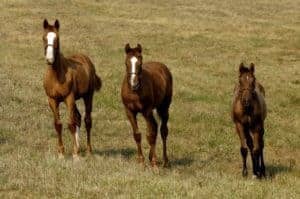
With much research surrounding how to feed “abnormal” horses, how can we feed “normal” horses to avoid disease? One expert weighs in.

One equine nutritionist explains how to ensure your horse’s diet does not contain dangerous levels of sugar.

Knowing the causes of colic in horses, treatment options, and why referral might be necessary can give your horse a better outcome in a colic emergency.
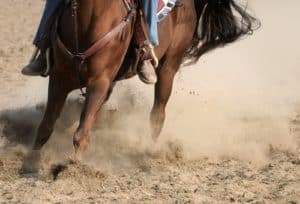
Early diagnosis and proper treatment of these joint problems can make the difference in whether the horse can return to soundness.

When choosing a probiotic for your horse, read the label carefully to ensure it addresses these concerns.
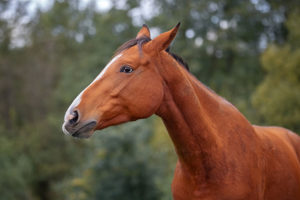
An equine nutritionist explains what changes you can make to your horse’s diet to help him better cope with stress.

Researchers have developed a new recommendation for horses being treated with the drug for a period of eight weeks.
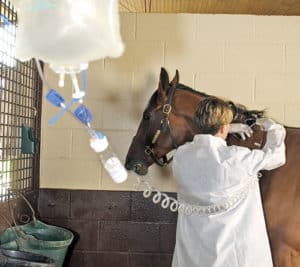
Learn to navigate the murky waters of diagnostic testing for this zoonotic disease.

Commonly known as “heaves,” equine asthma is a serious condition that requires proper diagnosis, management, and often treatment. Sponsored by Boehringer Ingelheim.
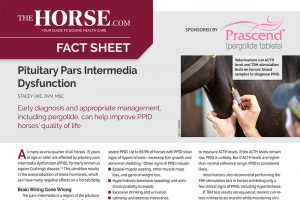
Early diagnosis and appropriate management, including pergolide, can help improve PPID horses’ quality of life. Learn more in this free download, sponsored by Boehringer Ingelheim.
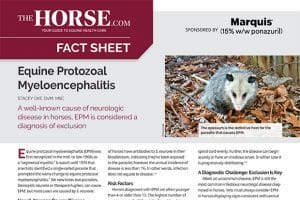
Equine protozoal myeloencephalitis is a progressive and potentially fatal neurologic disease in horses caused by protozoal microorganisms, most commonly S. neurona. Sponsored by Marquis.
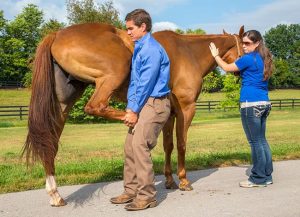
Experts answer common questions about this crippling condition that affects horses of all breeds, disciplines, and ages.

Learn why your horse might be exhibiting undesirable behaviors and what you can do to change them.

Learn about three regenerative modalities commonly used in equine medicine, when veterinarians and horse owners might consider each, and what’s to come.
Stay on top of the most recent Horse Health news with
© 2022 Copyright Statement dolor sit amet, consetetur sadipscing User Terms, sed diam nonumy eirmod tempor invidunt ut labore et dolore magna aliquyam erat, sed diam voluptua. At vero eos et accusam et justo duo dolores et ea rebum. Stet clita kasd gubergren, no sea takimata sanctus est Lorem ipsum dolor sit amet.